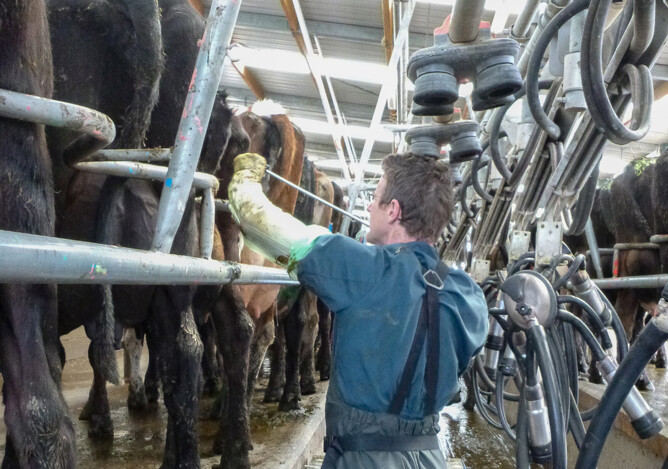Cows with even mild infections in their uterus at mating cost you money (and time), with more non-cyclers, poorer conception rates, higher empty rates, and fewer days in milk overall. These 'dirty' cows can take up to four weeks longer to get in calf and have empty rates 10-30% higher than 'clean' cows.
Metrichecking is the most efficient way of finding 'dirty' cows to allow treatment. If an infection is detected, we use an intrauterine antibiotic to treat it.
We recommend checking the whole herd. All cows who've calved have the potential to have an infection, so if you only check your ‘at risk’ cows (such as ones who had assisted calvings) you may miss up to 70% of cows affected in your herd.
The transition from a dry cow to a high-performing milking cow places significant pressure on the animal. As a result, any health issues after calving can increase the risk of a cow’s immune system failing to effectively clear the uterus of bacteria. Conditions such as mastitis, milk fever, and other down cow problems all increase infection risk. Many cows may develop mild infections in their uterus that aren’t detectable just by looking at her.
Metrichecking is best done 2-4 weeks after the cow has calved and at least 35 days before mating. At about four weeks after calving, the cervix has fully contracted and may no longer allow pus to be expelled from the uterus. This can show as a negative metricheck result, even though the cow is still infected.
For this reason, your cows may need checked in two or three batches if you have a long calving period. Metrichecking separate groups of cows as they reach the 2-4 week window post-calving is more effective than just one whole-herd metrichecking visit – saving you money in the long run.
The sooner your 'dirty' cows are detected and treated, the better the financial return come mating time.

